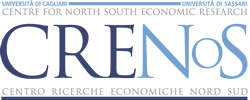Human Capital Policies in a Static, Two-Sector Economy with Imperfect Markets
| Title | Human Capital Policies in a Static, Two-Sector Economy with Imperfect Markets |
| Publication Type | Working Paper |
| Year of Publication | 2008 |
| Authors | Mendolicchio, C, Paolini, D, Pietra, T |
| Number | 2008_07 |
| Keywords | efficiency, human capital, human capital policies |
| Abstract | The paper studies a two-sector economy with investments in human and physical capital and imperfect labor markets. Workers and firms endogenously select (paying a fixed cost) the sector they are active in, and choose the amount of their investments. The economy is characterized by pecuniary externalities. Given the partition of the agents among the two sectors, at equilibrium there is underinvestment in both human and physical capital, as in Acemoglu (1996). A second externality is induced by the self-selection of the agents in the two sectors. When the difference between total factor productivities (TFP) is sufficiently large, subsidies to investments in education in the low TFP sector and fixed taxes increasing the cost to access the high productivity sector increase expected total surplus, while subsidies to investments in the high TFP sector can actually reduce it. To the contrary, subsidies to the amount of investments in human capital in the high TFP sector may have a positive effect on social welfare when the TFPs are sufficiently close. |
| Citation Key | 272 |
| Attachment | Size |
|---|---|
| 367.21 KB |
